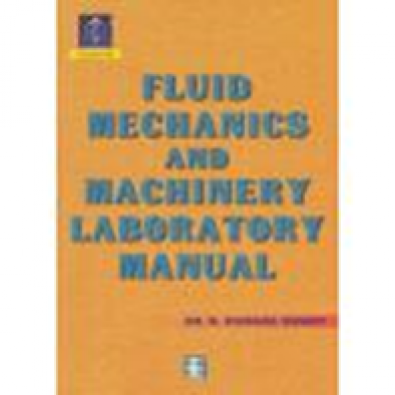The aim to prepare this manual to understand fundamental principles, concepts and significance of various experiments as per existing laboratory experimental practice and evaluation procedure in the subject fluid mechanics and fluid machinery.
The manual explains the procedure for various experiments including principle, apparatus, experimental set up, handling of apparatus, range and accuracy of observations, model calculation, engineering significance, practical applications for each experiment in fluid mechanics and fluid machinery.
This manual also gives comprehensive view about how to perform various experiments, how to presentation of experiment results in the form of laboratory report and how to evaluate performance of a student in the laboratory and how to implement experiment results in field. Also it provides to the students the essential information required to understand fundamental concepts, to carry out the experiment and to implement the experiment results in the field. It improves skills in experimentation, presentation and implement of experimental results in the field.
It will help to take accurate observations and analysis of experimental results. Question bank given in separate chapter is useful to students for better understanding concepts and answering viva questions.
This manual also provides necessary valuable information regarding planning and maintenance of Fluid Mechanics and Machinery Laboratory, which helps to the faculty members in setting their own fluid mechanics and machinery laboratory.
This book also contains some other useful information like, SI and conversion table, physical properties units of water, air and common liquids, dimensionless number and various graphs related to viscosity, friction factors and discharge.
Student’s performance evaluation procedure has also been discussed in a separate chapter, which is very useful for teachers.
It is hoped that the book will satisfy the needs of the Engineering students preparing for the Degree examinations of almost all the Indian Universities, Diploma examinations conducted by various Boards of Technical Education, Certificate courses as well as for the A.M.I.E., U.P.S.C., G.A.T.E., I.E.S. and other similar competitive and professional Examinations. It should also be of an immense help to the practicing Engineers.


